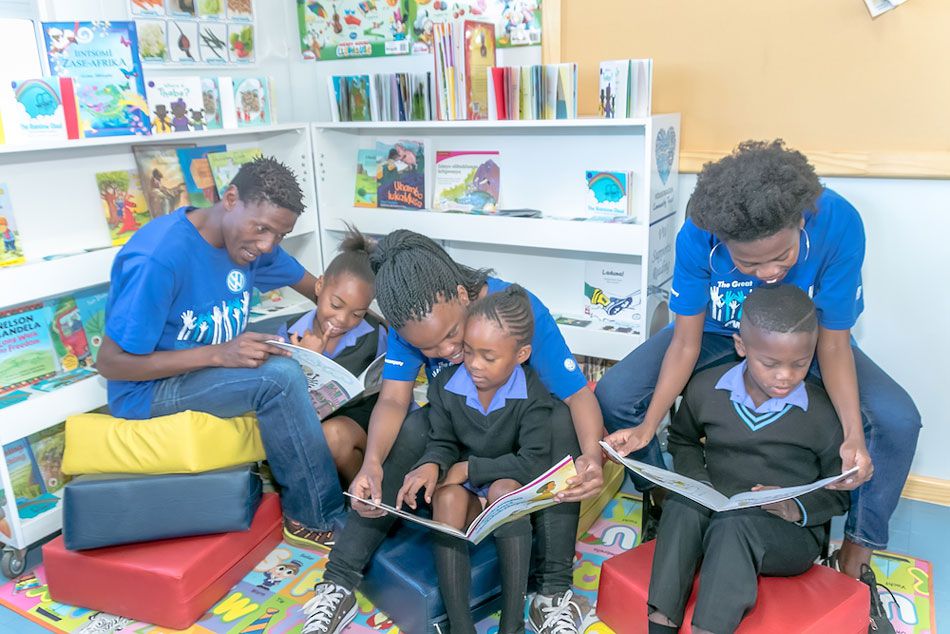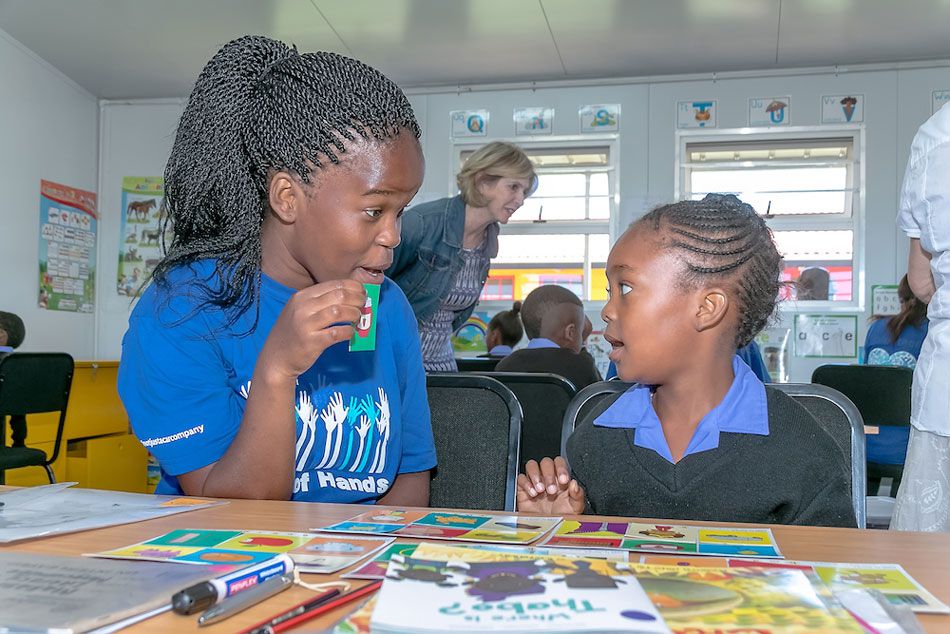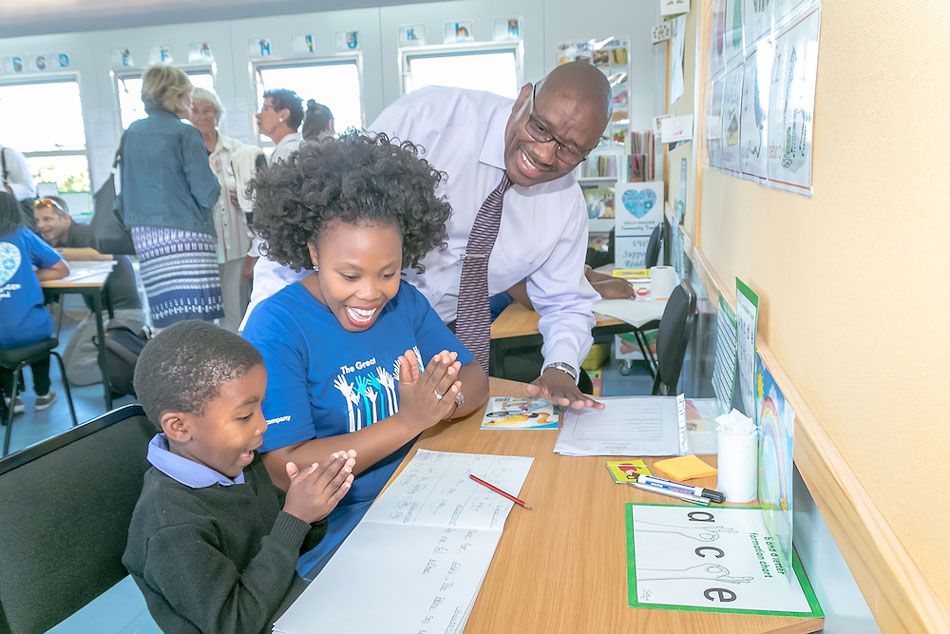
(Left to right) Reading right: VW for Good volunteer Thembisile Matase Zendile with learner Mpho Tau, volunteer Sibongile Mbedzi with Emihle Makasi and Sinazo Qolohle with learner Buhle Ntshenge. This literacy centre is based at Mngunube Primary School, KwaNobuhle, Uitenhage.
80% of South African children are unable to read fluently or with understanding in any language by Grade 4, which restricts their progress in school and their future work opportunities. However, a new topic on "functional literacy in the foundation phase" on the Trialogue Knowledge Hub is now available to help corporates and philanthropists address this crisis.
Sponsored by Volkswagen, the site includes examples of best practice projects, case studies and research papers so that others can inform themselves and develop or improve their own literacy projects and programmes.
(http://trialogueknowledgehub.co.za/index.php/foundation-phase-literacy)
“According to the Progress in International Reading Literacy Study 2016, well over half of the learners in our public school system are unable to read fluently and with understanding by the time they are 10 years old,” said Nick Rockey, MD of leading CSI consultancy Trialogue.
“We are, however, aware of many organisations and individuals that have made a difference in under-resourced schools and communities. They are eager to share their research and lessons learnt, so we have gathered information from a wide range of sources to make them easily accessible in one location. We hope that the Knowledge Hub will inform others so that they can invest their time and resources optimally.”
Rockey said the aim was to illustrate why literacy is important, showcase examples of investments that have been made and the resulting impact, and encourage more corporate and philanthropic investment in this subject.
“Ultimately the hub aims to improve and strengthen CSI in the development sector by enabling companies and philanthropists to build on existing work ‒ which they can easily access on the hub ‒ rather than re-invent the wheel.”

Bonding over books: VW for Good volunteer Sibongile Mbedzi (left) with learner Emihle Makasi at the VW literacy centre based at Mngunube Primary School, KwaNobuhle, Uitenhage.
This topic on the Trialogue Knowledge Hub is sponsored by Volkswagen, which shares its experiences from its VW for Good literacy programme. Started in 2015, its goal is for all learners in Uitenhage to be functionally literate by the time they reach the age of ten, or grade three.
“Our programme is still in its developmental phase, but the reach of the various interventions is already exciting and we look forward to sharing our findings with others,” said Nonkqubela Maliza, the Director for Corporate & Government Affairs at Volkswagen.
“Together with our partners Shine Literacy, Edupeg and Nal’ibali National Literacy, we’ve formulated a comprehensive programme that focuses on the essential building blocks of an effective literacy programme: the learner, teacher, parents and caregivers. The programme equips the learners with the resources necessary to be able to read with meaning. It also equips the teachers, parents and caregivers with skills necessary to support their children’s development in the classroom and at home.”
The programme has established literacy centres which give individual support to learners who are running the risk of being left behind, installs libraries and mobile libraries at schools, and establishes reading clubs in the community. There are also teacher development workshops which enable teachers to teach and assess literacy.

Making a difference: Learner Asiphesona Malotana from Mngunube Primary School, KwaNobuhle, Uitenhage, gets some reading assistance from VW for Good volunteer Bongeka Grootboom.
“We also host an annual literacy conference which is aimed at shining a spotlight on the importance of literacy at foundation phase, accelerates buy-in and provides a platform for sharing best practice and collaboration,” said Ms Maliza.
“In addition, we involve our employees through our employee volunteer programme, which works in synergy with all the literacy programmes. Once the facilities of a school have been improved, we then work with our partners to introduce and implement initiatives that extend the programme beyond the employee event.”
Rockey concluded that research released in 2010 estimated that illiteracy costs South Africa R450 billion a year. “Tackling functional literacy in the school foundation phase would make a fundamental difference to the upcoming generation and society as a whole. We encourage educators and others to access our Knowledge Hub site, and to contact us if they would like to share their own experiences.”
To access the resource: http://www.trialogueknowledgehub.co.za/.
To share learnings: Companies interested in sponsoring a topic or contributing learnings to and insights on existing topics should contact Ruendree Govinder at az.oc.eugolairt@rednivogr.
Sources: Gustafsson, M., van der Berg, S., Shepherd, D. Burger, C. (2010). The Costs Of Illiteracy In South Africa. Stellenbosch University.
Martinez, R., Fernandez, A. (2010). The Social and Economic Impact of Illiteracy.
